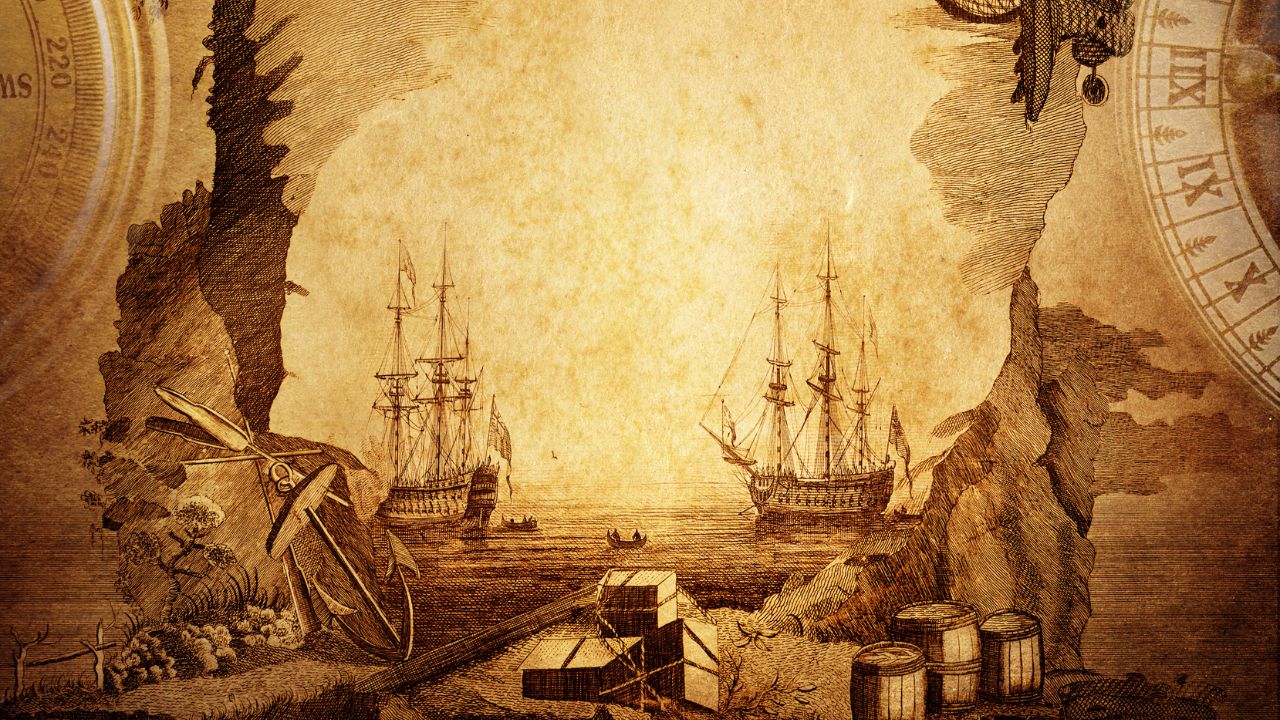
Post by : Zayd Kamal
Picture a world untouched by modern advancements, where survival depended solely on ingenuity and adaptation. This was the prehistoric era, a vast span of time before written records, marked by extraordinary human evolution. From the development of basic tools to the first communities, this era provides a fascinating glimpse into life before history as we know it. Spanning millions of years, the prehistoric era showcases the resilience and creativity of early humans, offering us a profound understanding of our shared origins.
The prehistoric era is broadly categorized into three main periods: the Stone Age, the Bronze Age, and the Iron Age, each defined by the materials used for tools and weapons. The Stone Age, which marked the dawn of human civilization, saw early humans rely on stone tools and adopt a hunter-gatherer lifestyle. It is further divided into the Paleolithic, Mesolithic, and Neolithic phases, each representing advancements in tool-making and social organization. The Bronze Age followed, introducing metal tools and bringing significant progress in trade, agriculture, and craftsmanship. Finally, the Iron Age marked the transition to more advanced societies, where iron tools and weapons revolutionized daily life and laid the groundwork for recorded history.
Life during the prehistoric era was a constant struggle for survival, with early humans deeply dependent on nature for their basic needs. Hunting and gathering were the primary means of subsistence, requiring exceptional skills to track animals and identify edible plants. Shelters were initially natural caves but gradually evolved into simple structures made of wood, animal hides, and bones. Clothing, crafted from animal skins, served as protection against the elements, especially in colder climates. Tool-making was one of the most significant achievements of this era, with early humans fashioning stone tools, spears, and eventually the bow and arrow. These inventions were not only critical for survival but also marked the beginning of human innovation.
Despite the lack of written language, the prehistoric era witnessed remarkable cultural advancements that reflect early humans' creativity and spiritual awareness. Cave art stands out as one of the most enduring legacies, with paintings of animals and hunting scenes suggesting ritualistic or communicative purposes. Burial practices, where tools and ornaments were placed alongside the deceased, indicate an early understanding of life, death, and possibly an afterlife. As humans transitioned from nomadic lifestyles to settled communities during the Neolithic period, they began cultivating crops and domesticating animals, fostering social cohesion and shared cultural practices. These developments laid the foundation for the complex civilizations that would follow.
The prehistoric era was marked by groundbreaking discoveries that transformed human life and set the stage for modern civilization. The mastery of fire was a turning point, providing warmth, protection, and the ability to cook food, which improved nutrition and survival rates. Agriculture was another revolutionary development, allowing humans to settle in one place and establish stable food supplies. This shift led to the growth of villages and early societal structures. The invention of the wheel further accelerated progress, making transportation and labor more efficient. Each of these discoveries reflects the ingenuity of early humans, whose resilience shaped the course of history.

The prehistoric era remains deeply relevant as it offers insights into human adaptability, innovation, and survival. Studying this period helps us understand the challenges faced by our ancestors and the remarkable ways they overcame them. Their achievements, from the simplest tools to the first settlements, laid the groundwork for the civilizations we inhabit today. Ongoing archaeological discoveries continue to uncover new facets of this era, connecting us to our roots and highlighting the unyielding human spirit. By examining the prehistoric era, we gain a greater appreciation for the resilience and ingenuity that define humanity.
The prehistoric era was an exciting time when early humans lived before written history began. During the prehistoric era, people used stone tools, hunted animals, and gathered plants to survive. The prehistoric era was divided into the Stone Age, Bronze Age, and Iron Age, with each period showing how people improved tools and discovered new ways to live. In the prehistoric era, humans learned to use fire for cooking and warmth, farmed the land for food, and built small villages. The prehistoric era was also a time when people painted on cave walls and began to understand life and death. The discoveries made in the prehistoric era changed how humans lived and helped build the world we know today. Learning about the prehistoric era teaches us how strong, smart, and creative our ancestors were.
This article about the prehistoric era has been shared by dxb news network for educational and informational purposes only.
Prehistoric era, Stone Age, Bronze Age, Iron Age, Early humans, Prehistoric survival, Cave art, Tool-making, Fire discovery, Agriculture, Hunter-gatherers, Neolithic period, Ancient discoveries, Prehistoric culture, Human evolution, Prehistoric tools, Burial practices, Early civilization, Ancient history, Survival skills
#trending #latest #PrehistoricEra #StoneAge #BronzeAge #IronAge #EarlyHumans #PrehistoricSurvival #CaveArt #ToolMaking #FireDiscovery #Agriculture #HunterGatherers #NeolithicPeriod #AncientDiscoveries #PrehistoricCulture #HumanEvolution #PrehistoricTools #BurialPractices #EarlyCivilization #AncientHistory #SurvivalSkills #breakingnews #worldnews #headlines #topstories #globalUpdate #dxbnewsnetwork #dxbnews #dxbdnn #dxbnewsnetworkdnn #bestnewschanneldubai #bestnewschannelUAE #bestnewschannelabudhabi #bestnewschannelajman #bestnewschannelofdubai #popularnewschanneldubai










Sheikh Mansour Arrives in Kuwait to Boost UAE-Kuwait Relations
Sheikh Mansour arrives in Kuwait for an official visit to meet the Emir, aiming to strengthen UAE-Ku

Story :The Merchant of Manchester - by Dr Amrinder Pal Singh
Story of loss, Kindness, Betrayal… and Legacy

Rashid Al Obad Appointed Director General of Shams
Sheikh Sultan issues Emiri Decree appointing Rashid Al Obad as Director General of Sharjah Media Cit

Dubai’s Government Best Practices Series 2025 Highlights Innovation
The Government Best Practices Series 2025 in Dubai focused on government innovation, digital service

Dubai Hosts GenAI Masterclass for Future Family Leaders
Dubai Centre for Family Businesses held a GenAI masterclass to train 24 young leaders in using AI fo

ArtDomain by DXB News Network Opens to Strong Global Response — Applications Begin for A50 and The Art Guild.
ArtDomain by DXB News Network Opens to Strong Global Response — Applications Begin for A50 and The A

Dembele's Goal Gives PSG a 1-0 Win Over Arsenal in Semi-final
Ousmane Dembele scores early to give PSG a 1-0 win over Arsenal in their Champions League semi-final